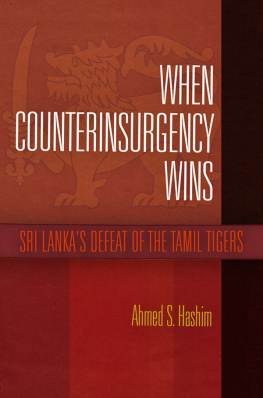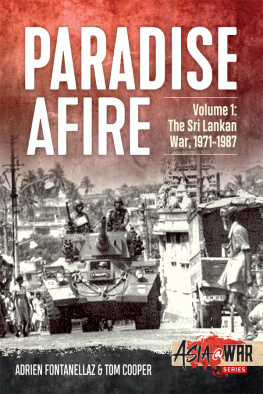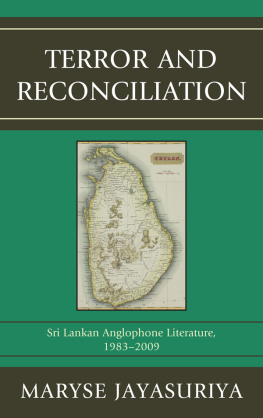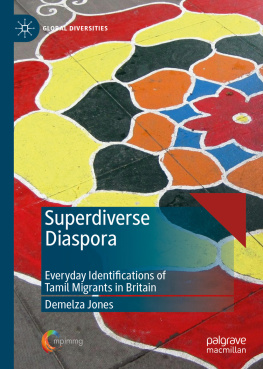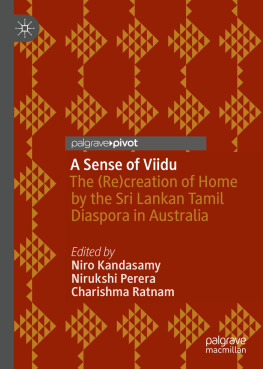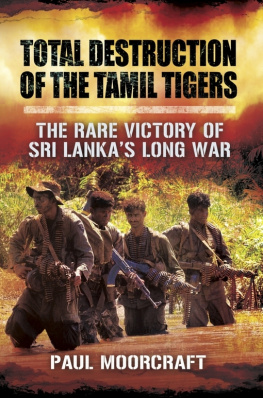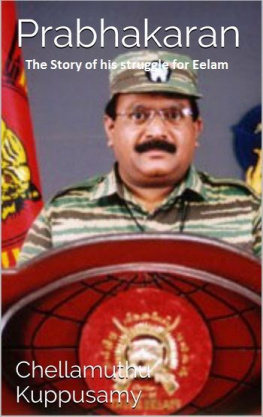Pain, Pride, and Politics
GEOGRAPHIES OF JUSTICE AND SOCIAL TRANSFORMATION
SERIES EDITORS
Deborah Cowen, University of Toronto
Nik Heynen, University of Georgia
Melissa W. Wright, Pennsylvania State University
ADVISORY BOARD
Mathew Coleman, Ohio State University
Sapana Doshi, University of Arizona
Zeynep Gambetti, Boazii University
Geoff Mann, Simon Fraser University
James McCarthy, Clark University
Beverly Mullings, Queens University
Harvey Neo, National University of Singapore
Geraldine Pratt, University of British Columbia
Ananya Roy, University of California, Berkeley
Michael Watts, University of California, Berkeley
Ruth Wilson Gilmore, CUNY Graduate Center
Jamie Winders, Syracuse University
Brenda S. A. Yeoh, National University of Singapore
Pain, Pride, and Politics
SOCIAL MOVEMENT ACTIVISM AND THE SRI LANKAN TAMIL DIASPORA IN CANADA
AMARNATH AMARASINGAM
2015 by the University of Georgia Press
Athens, Georgia 30602
www.ugapress.org
All rights reserved
Set in Minion and Trade Gothic by Graphic Composition, Inc., Bogart, GA
Printed and bound by Sheridan Books, Inc.
The paper in this book meets the guidelines for permanence and durability of the Committee on Production Guidelines for Book Longevity of the Council on Library Resources.
Most University of Georgia Press titles are available from popular e-book vendors.
Printed in the United States of America
19 18 17 16 15 p 5 4 3 2 1
Library of Congress Cataloging-in-Publication Data
Amarasingam, Amarnath.
Pain, pride, and politics : social movement activism and the Sri Lankan Tamil diaspora in Canada / Amarnath Amarasingam. 1st Edition.
pages cm. (Geographies of justice and social transformation)
Includes bibliographical references and index.
ISBN 978-0-8203-4812-4 (hardcover : alk. paper)
ISBN 978-0-8203-4813-1 (pbk. : alk. paper) ISBN 978-0-8203-4814-8 (ebook)
1. CanadaEmigration and immigrationSri Lanka. 2. Sri LankaEmigration and immigrationCanada. 3. Sri LankaHistoryCivil War, 1983-2009.
4. TamilsCanada. 5. Social movementsSri Lanka. 6. Group identity
Sri Lanka. I. Title.
JV 8752.7. A 43 2015 305.894811071dc23
2014042983
British Library Cataloging-in-Publication Data available
For Avandhi
CONTENTS
FIGURES AND TABLES
Figures
Tables
ACKNOWLEDGMENTS
I am grateful to all of those people who made this book possible. First and foremost, I would like to thank my dissertation supervisor, Lorne Dawson, for his unrelenting support throughout my graduate career and his continued encouragement of my varied pursuits. I am thankful to my thesis committee members, Janet McLellan, Paul Freston, Margaret Walton-Roberts, and Prema Kurien, for sharing critical insights on the project.
I am also forever indebted to several members of the Tamil community in Canada, various law enforcement officials, and community leaders who generously gave their time and participated in the project. This book simply would not exist without your help and encouragement. I respect your request to stay anonymous but wish I could thank you by name.
There are also numerous individuals who provided enormously important help in one form or another at critical junctures in the writing and editing process: Chandra de Silva, Sudharshan Seneviratne, Jennifer Hyndman, R. Cheran, David Seljak, Dagmar Hellmann-Rajanayagam, Jack Jedwab, Chris Anderson, Margaret Walton-Roberts, Michael Molloy, Raphael Girard, Robert Scott Heatherington, Gerry Van Kessel, Arul Aruliah, Ziad Munson, Anushi and Vishali Sivarajah, Velupillai Thangavelu, Peter Schalk, Bob Rae, Sri-gugan Sriskandarajah, Daniel Bass, Vasantha Sritharan, Sharika Thiranagama, Stuart Wright, Doug McAdam, James Jasper, Peggy Levitt, ivind Fuglerud, Kumari Jeyawardene, Richard Danziger, Kumaran Nadesan, Ashwin Balamohan, Alan Keenan, M. R. Narayan Swamy, and Jyothi Natarajan. There are likely dozens of others whom I have forgotten. Please forgive me.
I would also like to thank the students and faculty in various departments at Wilfrid Laurier University and the University of Waterloo for their encouragement and friendship. Special appreciation must go to Rory Dickson, Adam Stewart, Rachel Brown, Shobhana Xavier, Asma Bala, Brent Hagerman, and Yasaman Munro. I am also grateful to my longtime friend and mentor Robert A. Campbell, for providing helpful advice gleaned from years of experience.
I would like to thank my parents, who, while often wondering what exactly an academic does, always encouraged my pursuits. Your love is boundless, and I am forever in your debt. I am further grateful to my father-in-law, mother-in-law, and Iyah for their love and endless support.
I would also like to thank my wife, Harshi, for her patience and support throughout the writing process. Finally, I dedicate this book to our beautiful daughter, Avandhi, whose arrival provided me with the much-needed sense of urgency and purpose needed to complete the project.
Pain, Pride, and Politics
INTRODUCTION
One day in the early 1990s as I was arriving home from school, I took the elevator up to my familys apartment in Toronto and saw two nondescript men at our front door. They looked as if they had been knocking for quite a while and were growing increasingly irritated that no one was answering. I was surprised, as I knew my parents were home. I walked around the men and fumbled around for my keys. Who are you? they asked. I think the question is, who are you? I responded, young tough guy that I was. As I opened the door and walked in, my parents also came to the front door, presumably hearing the quasi argument taking place. We would like to talk to youcan we come in? asked one of the men. We have no money. Its pretty tough these days, my parents replied, apparently already aware that these men were collecting money for the Liberation Tigers of Tamil Eelam ( LTTE ). They stood at the front door and asked to come inside for such a long time that my parents eventually relented. The two men came inside and, while seated on our couch, explained their presence: the Tamil Tiger leadership needed our help, they said, and they would like us to make a small donation, perhaps even a monthly commitment.
By the 1990s, as will be examined in , the LTTE , or the Tamil Tigers, had been waging a war for an independent Tamil state, known as Tamil Eelam, carved out of the North and East of Sri Lanka, for several years. Their separatist demand, one that arose from the historic discrimination against Tamils in Sri Lanka and a failure of the state to give the community equal rights, was embraced by many Tamils in the diaspora, and what has come to be called the international network of the LTTE proliferated. The two men sitting in my familys living room that day asking my parents for a donation represented one face of this budding network. When my parents responded once again that they had little money these days, the men went on their way, presumably down the hallway of our apartment building to the next Tamil home.


